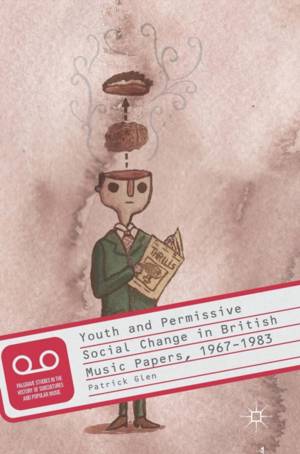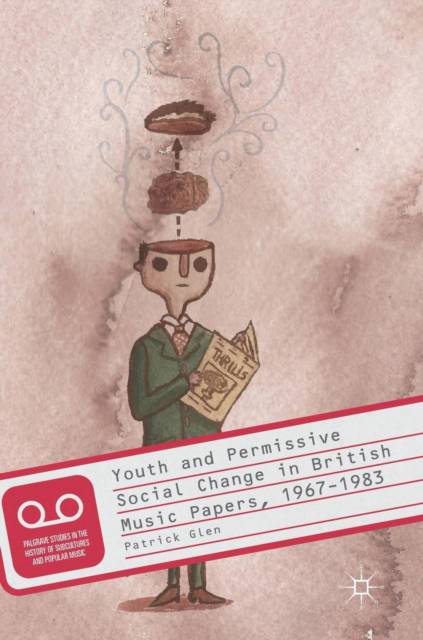
Bedankt voor het vertrouwen het afgelopen jaar! Om jou te bedanken bieden we GRATIS verzending (in België) aan op alles gedurende de hele maand januari.
- Afhalen na 1 uur in een winkel met voorraad
- In januari gratis thuislevering in België
- Ruim aanbod met 7 miljoen producten
Bedankt voor het vertrouwen het afgelopen jaar! Om jou te bedanken bieden we GRATIS verzending (in België) aan op alles gedurende de hele maand januari.
- Afhalen na 1 uur in een winkel met voorraad
- In januari gratis thuislevering in België
- Ruim aanbod met 7 miljoen producten
Zoeken
Youth and Permissive Social Change in British Music Papers, 1967-1983
Patrick Glen
€ 129,95
+ 259 punten
Omschrijving
This book is a work of press history that considers how the music press represented permissive social change for their youthful readership. Read by millions every week, the music press provided young people across the country with a guide to the sounds, personalities and controversies that shaped British popular music and, more broadly, British culture and society.
By analysing music papers and oral history interviews with journalists and editors, Patrick Glen examines how papers represented a lucrative entertainment industry and mass press that had to negotiate tensions between alternative sentiments and commercial prerogatives. This book demonstrates, as a consequence, how music papers constructed political positions, public identities and social mores within the context of the market. As a result, descriptions and experiences of social change and youth were contingent on the understandings of class, gender, sexuality, race and locality.
By analysing music papers and oral history interviews with journalists and editors, Patrick Glen examines how papers represented a lucrative entertainment industry and mass press that had to negotiate tensions between alternative sentiments and commercial prerogatives. This book demonstrates, as a consequence, how music papers constructed political positions, public identities and social mores within the context of the market. As a result, descriptions and experiences of social change and youth were contingent on the understandings of class, gender, sexuality, race and locality.
Specificaties
Betrokkenen
- Auteur(s):
- Uitgeverij:
Inhoud
- Aantal bladzijden:
- 251
- Taal:
- Engels
- Reeks:
Eigenschappen
- Productcode (EAN):
- 9783319916736
- Verschijningsdatum:
- 21/01/2019
- Uitvoering:
- Hardcover
- Formaat:
- Genaaid
- Afmetingen:
- 148 mm x 210 mm
- Gewicht:
- 462 g

Alleen bij Standaard Boekhandel
+ 259 punten op je klantenkaart van Standaard Boekhandel
Beoordelingen
We publiceren alleen reviews die voldoen aan de voorwaarden voor reviews. Bekijk onze voorwaarden voor reviews.









